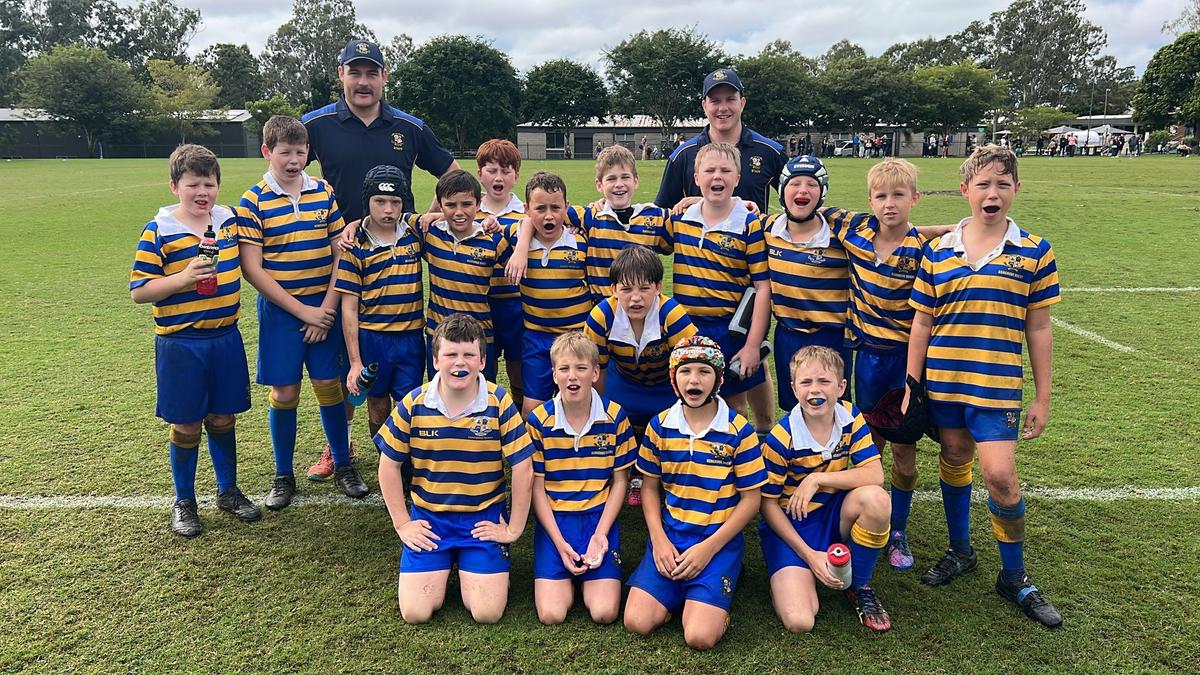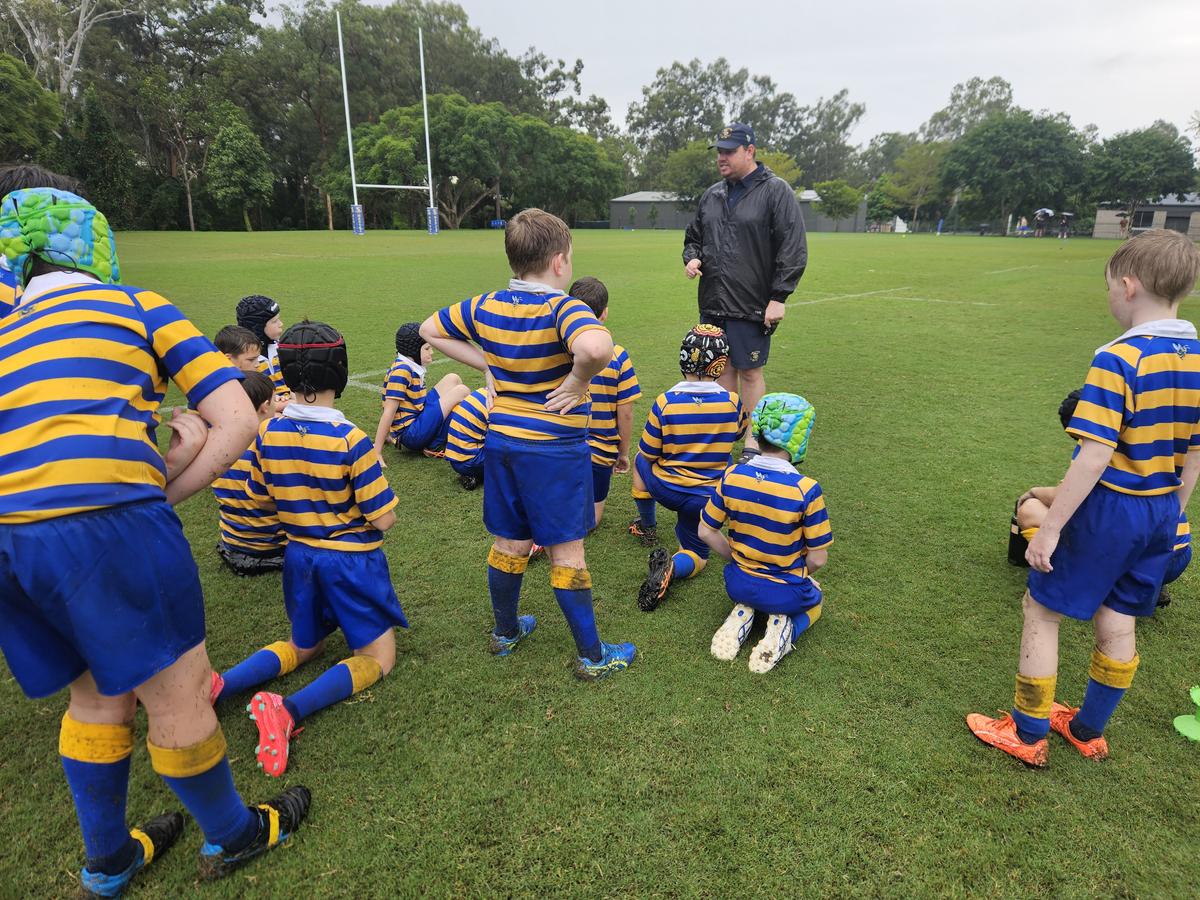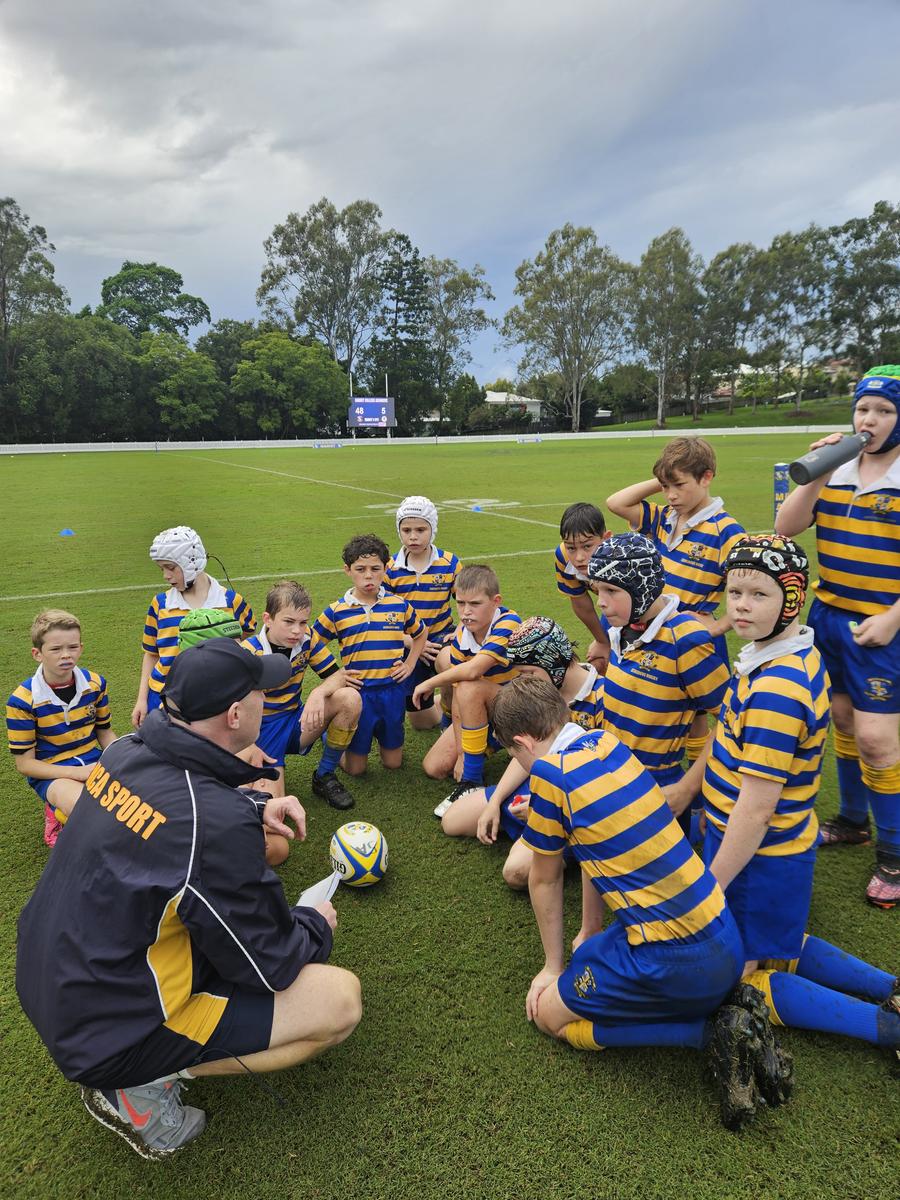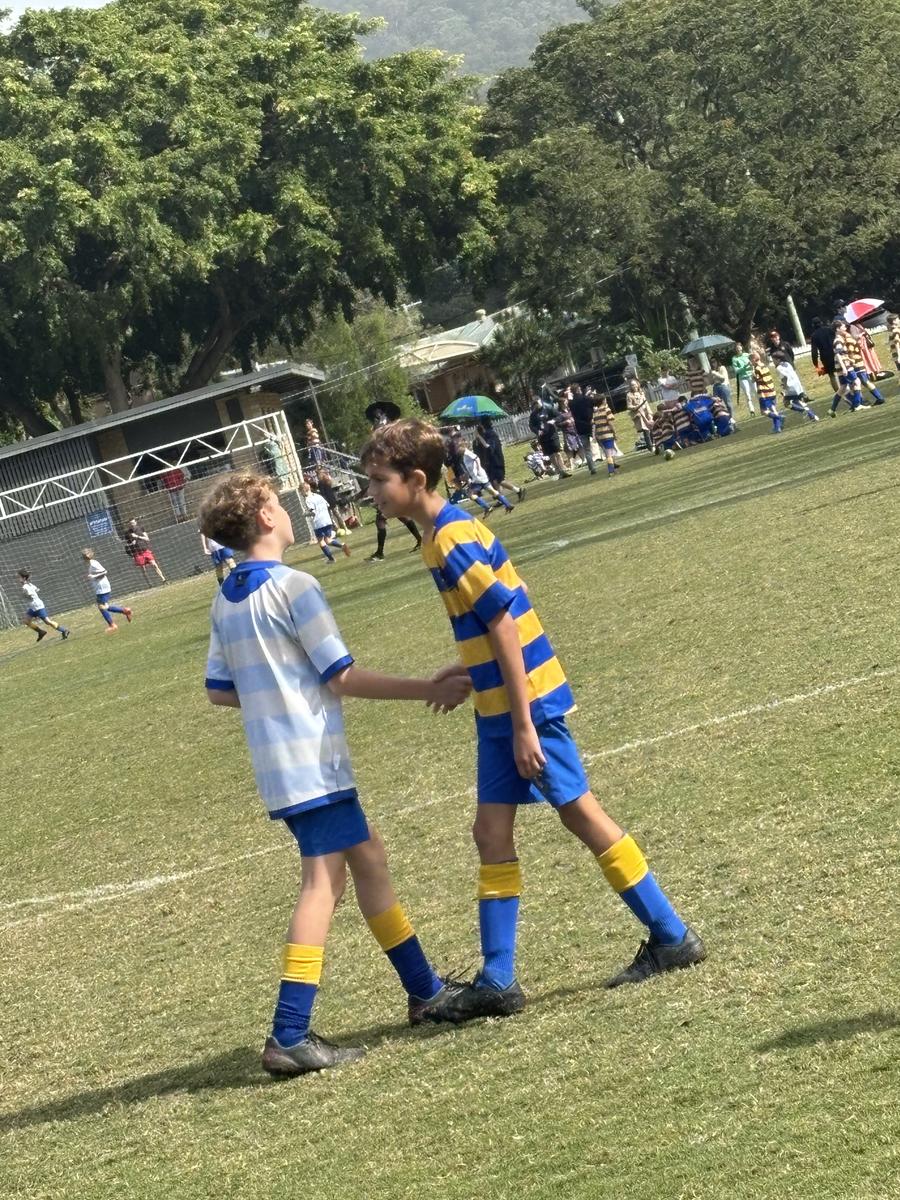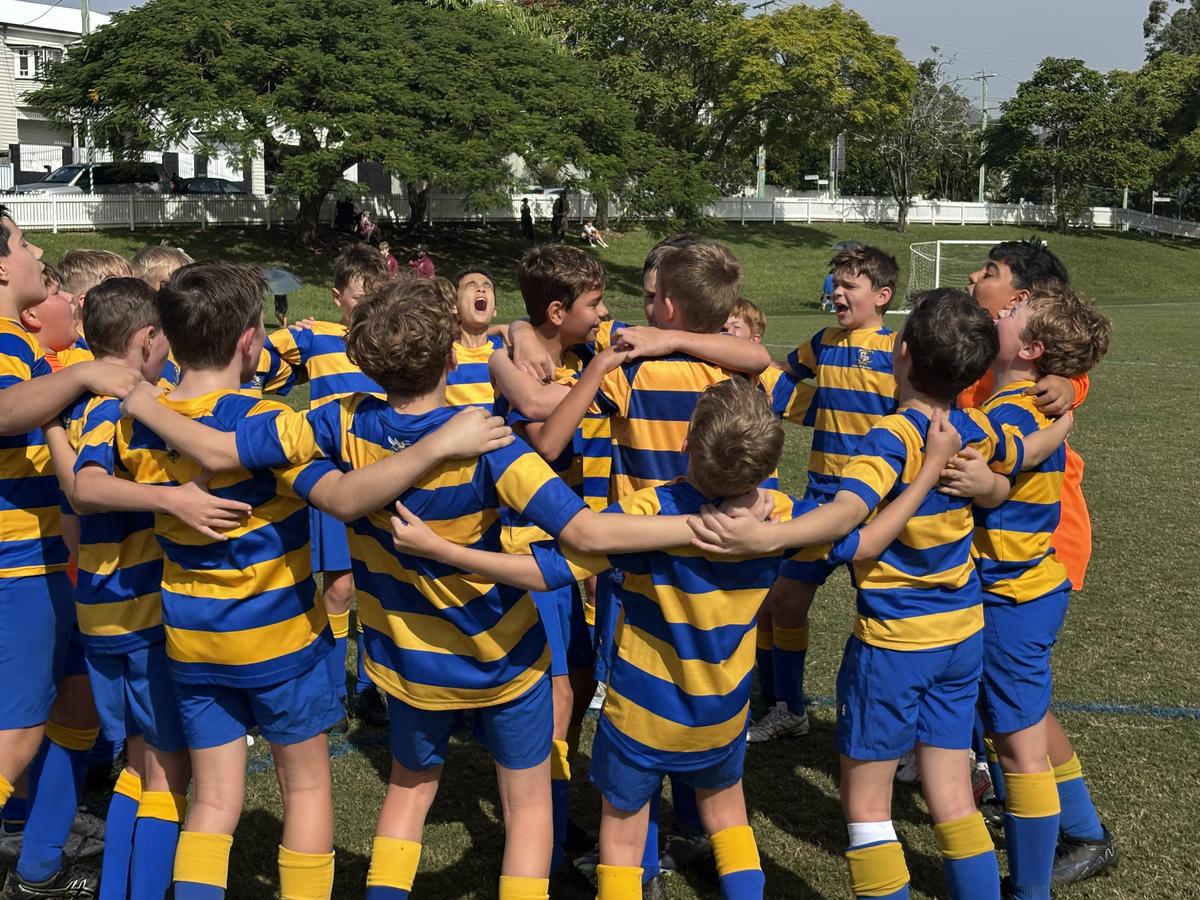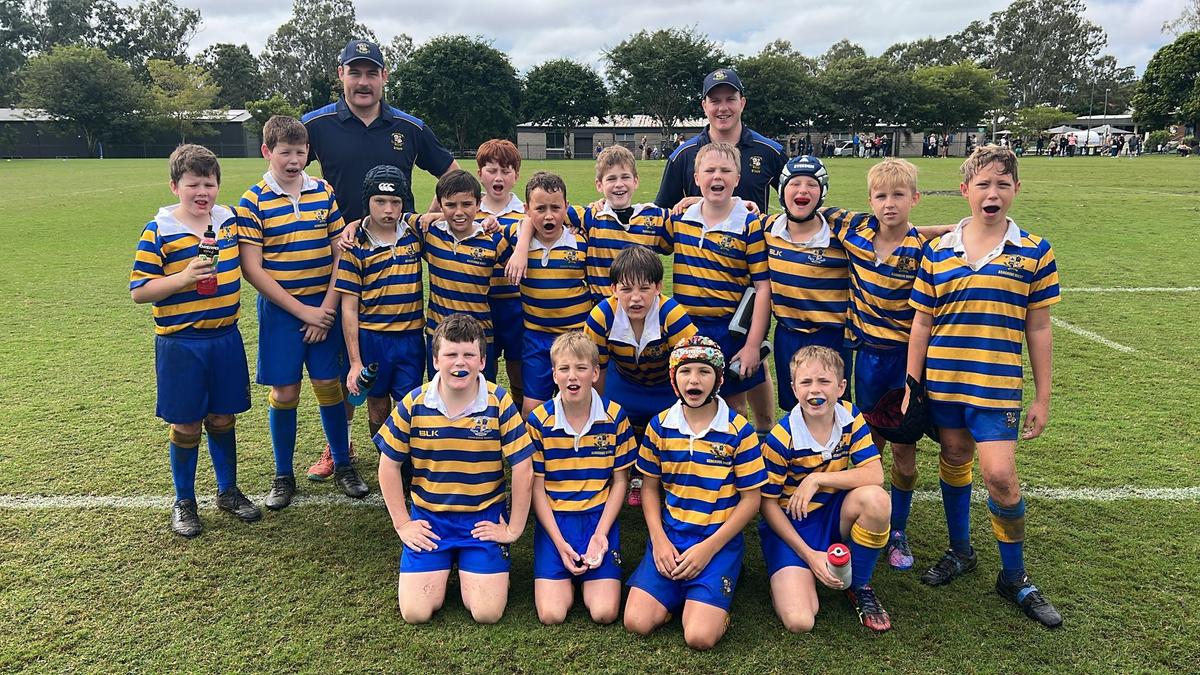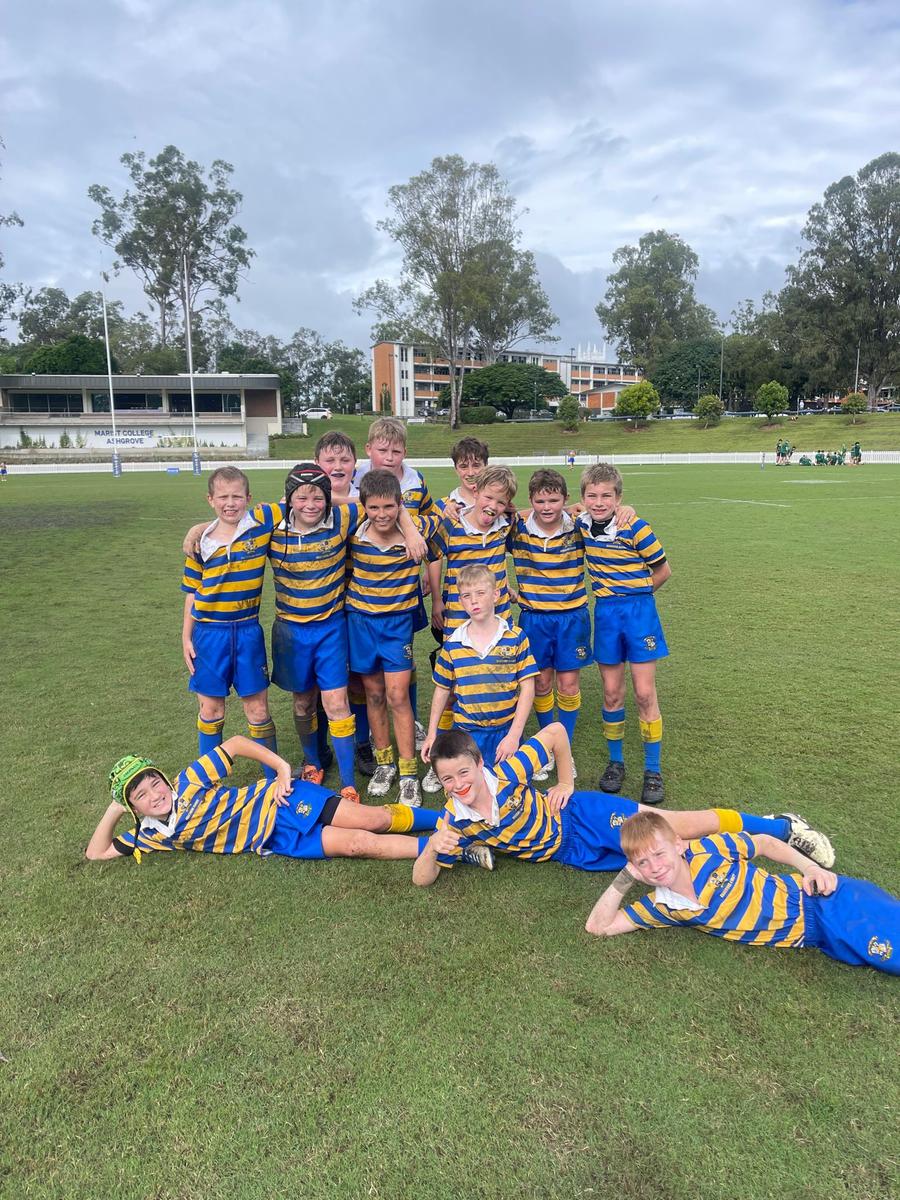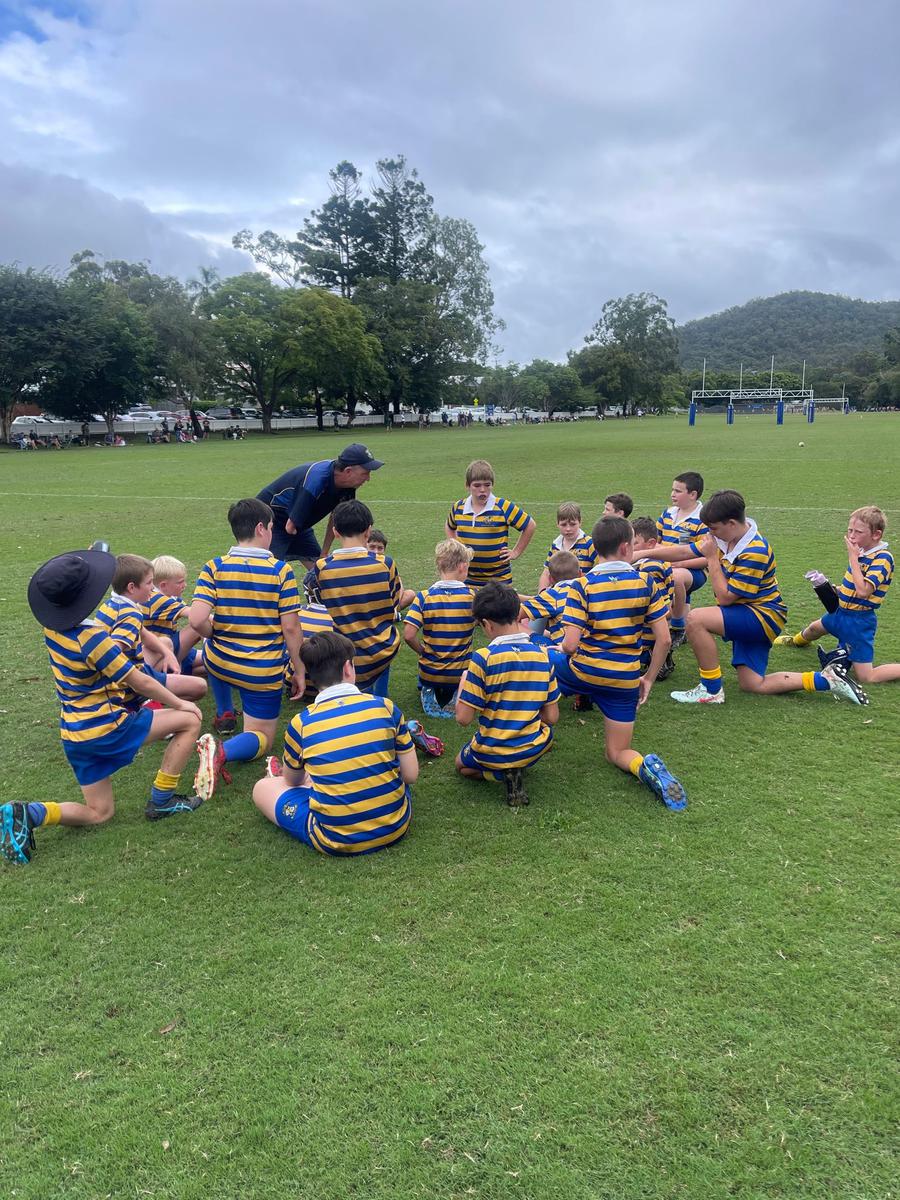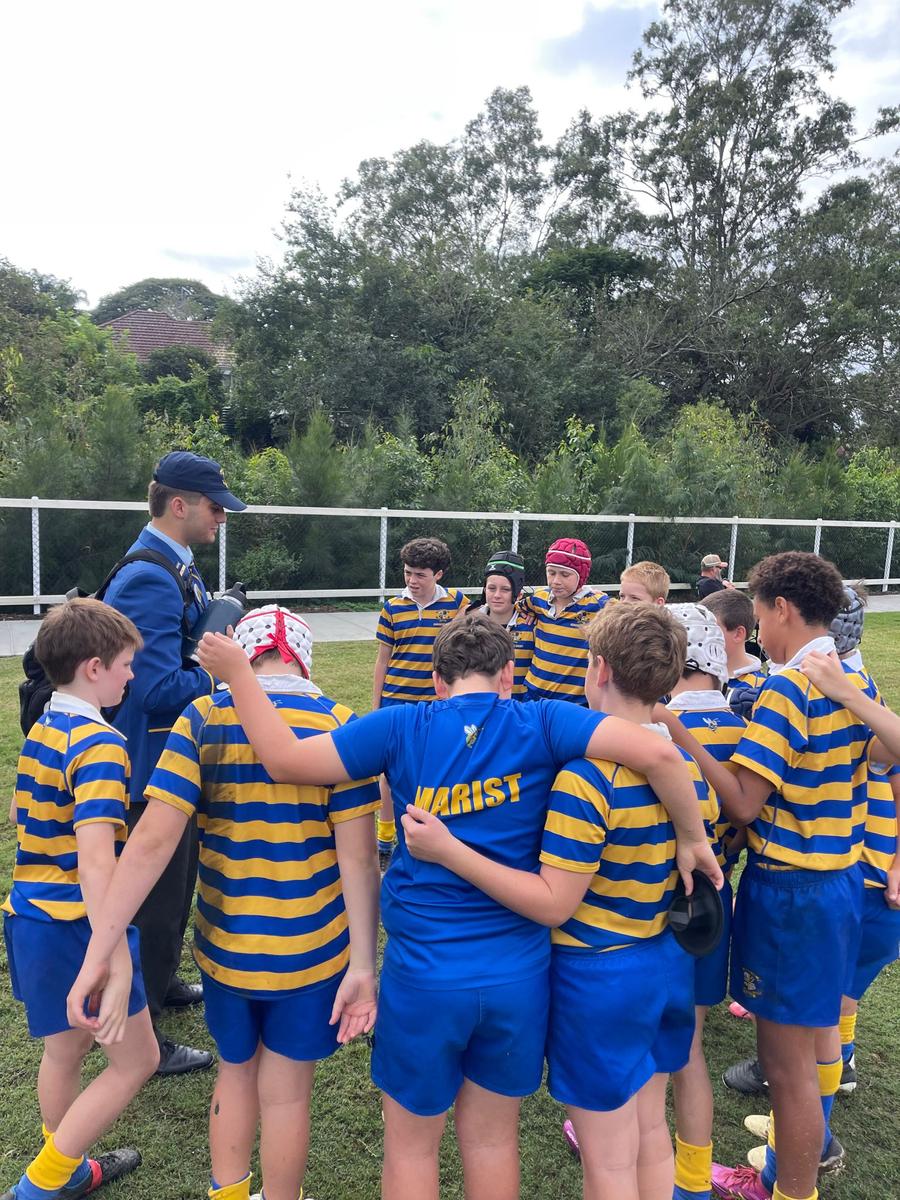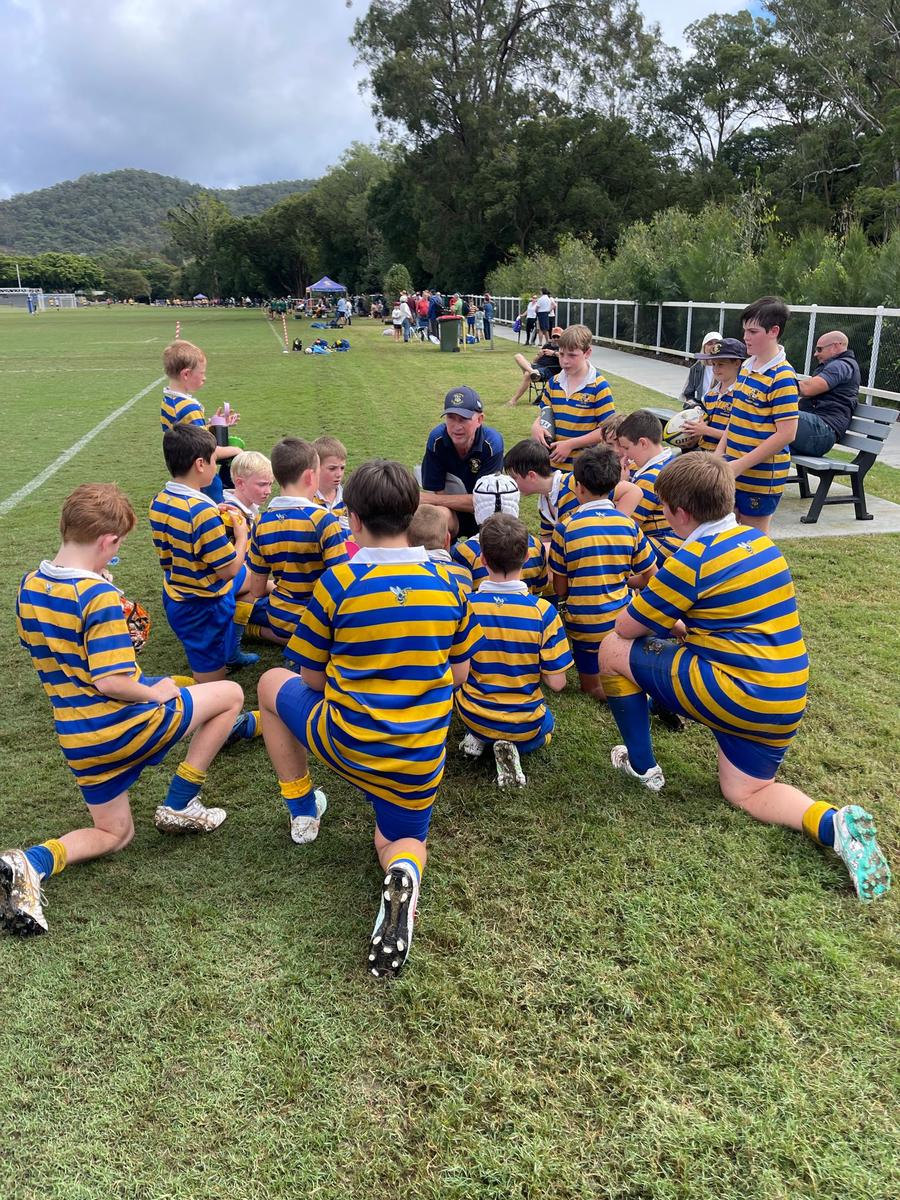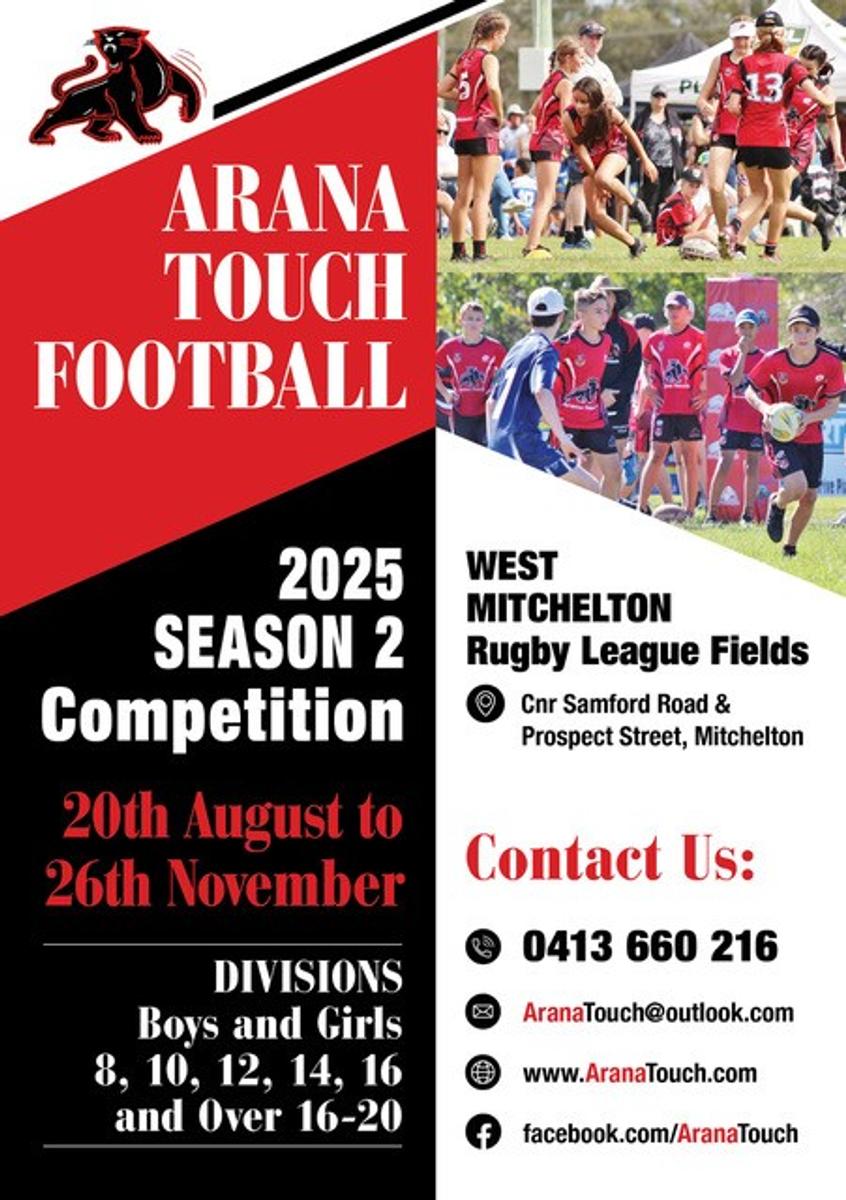Primary School News
Mr Michael Connolly, Head of Primary School

Primary School News
Mr Michael Connolly, Head of Primary School
As our boys continue their journey towards the midpoint of this term, the influence of positive role models in their lives is undeniable. The boys in our care are constantly reminded to be 100% Marist, 100% of the time. This is expected of them whilst they are here at school and during the time they are away from the college. At school, they are surrounded by adults who demonstrate by their words and actions, what it means to be Marist to one another. I am very proud of our staff for the way they model the Marist charism for the boys in the Primary School. One of the most profound impacts of our positive role models is in shaping boys’ attitudes towards themselves and others. There are countless opportunities for the boys to witness this charism in action on a daily basis. We all strive to get the little things right. This may seem a simple goal, but it is one that, if achieved, can lead to ongoing successes.
Society bombards our young boys with stereotypes of what it means to be masculine. These messages can be limiting, often emphasizing toughness and dominance as desirable traits. On the contrary, when our boys see adults exhibiting kindness, empathy and respect, they learn that these qualities are not signs of weakness but rather strengths that they too should endeavour to show towards others.
Importantly, positive role models for our boys come in many forms. They can be parents, siblings, teachers, coaches, older students, friends and even fictional characters in books and movies. By surrounding our boys with diverse and positive influences, we empower them to become well-rounded individuals who contribute positively to our school community, their own families and society as a whole. The power of providing a positive role model to our young should never be underestimated.
Uniform Pride and Organisation
This week, a renewed focus has been placed on uniform standards across the Primary school. During Pastoral time, staff will be conducting uniform checks, focusing on formal hats, yard hats, and blazers. These items should be clean, tidy, and free from damage. If an item requires attention—for example, fraying or broken stitching—students will be given one week to have it repaired or replaced.
A common issue we’ve noticed is with yard hats, where the outer stitching often becomes loose or detached. These can either be sewn back on or replaced through the College Uniform Shop if necessary. We appreciate your support in helping our boys take pride in their appearance and in maintaining our high uniform standards.
In addition, we will also be recognising boys who consistently wear their uniform with pride. Staff will be handing out raffle tickets to students who are seen wearing their uniform neatly and correctly throughout the week. These tickets will go into a draw, and the raffle winner will receive a prize. This is a small but meaningful way to celebrate the boys who are quietly setting a strong example for others.
Balancing the Marist Week
With many boys actively involved in sport, musical rehearsals, co-curricular activities, and academic commitments, it's important that they are developing skills to manage a busy schedule effectively. We encourage families to support students in staying organised and becoming increasingly independent in their weekly routines.
Here are some helpful tips to assist with managing a busy workload:
We’ve noticed an increasing number of boys visiting Reception to call home when items have been forgotten. While we understand that things can be left behind from time to time, we encourage parents not to feel pressure to urgently bring items to school. These small moments provide valuable opportunities for boys to build resilience, responsibility, and forward planning skills.
We appreciate your continued support in developing these important life skills in our boys.
Free Dress Day – Supporting Marist 180 and Loud Shirt Day
This Friday, 23rd May, we are celebrating a Free Dress Day in support of two meaningful causes.
Students who wear Free Dress are asked to donate $2, $5 or $10 with all funds raised going to the Marist 180 Noel Appeal. We are proud to support Marist 180, a charity that works to empower and support young people at risk through education, employment, and community programs, helping them to break cycles of disadvantage and build positive futures.
In addition, we will also be recognising Loud Shirt Day, an initiative that raises awareness and funds to support children who are deaf or hard of hearing through early intervention, education, and hearing technology. Please be reminded, it is a cashless day, all donations will be collected via ID Cards in the morning. We look forward to seeing the boys wearing their brightest and most colourful shirts as they help raise both funds and awareness for these important causes. Thank you for your ongoing support and generosity.


Study Skills Tips


As our students enter upper primary, the academic challenges they face become more complex. At this stage, it is important to emphasise that success in school is not solely determined by natural ability or luck. Instead, consistent effort and the development of effective study strategies are key to academic progress. By focusing on effort, your child can build the skills and resilience needed to tackle new challenges, regardless of how difficult they may seem at first.
Below are some practical study strategies that help students manage their time, boost their memory, improve note-taking, and stay motivated. These techniques can empower your child to take control of their learning and approach their studies with confidence and determination.
1. The Pomodoro Technique: Time Management for Better Focus
One of the most effective ways to help children stay focused while studying is by using the Pomodoro Technique. This simple, time-management strategy breaks study sessions into short, manageable intervals, making it easier for students to stay engaged without feeling overwhelmed.
How it works:
This approach helps students focus on one task at a time and prevents burnout. You can encourage your child to keep a timer on their desk or use a Pomodoro app on their device to make it more fun. It also teaches them how to balance work and rest effectively, an essential skill for both school and life.
2. Flash Cards: Boosting Memory and Retention
Flashcards are a classic study tool that works wonders for memorising facts, vocabulary, and key concepts. They help children actively engage with the material, which makes the learning process more effective and enjoyable.
Here are a few ideas to get the most out of flashcards:
3. Interactive Websites for Flashcard Creation
Creating flashcards online can be a fun and interactive way for your child to study. Many websites allow students to create digital flashcards and quiz themselves in engaging ways. Here are a few websites that can help:
By incorporating these tools into your child’s study routine, you can help them work smarter, not harder, while also fostering independence in their learning.
4. Mnemonics: A Fun Way to Remember Information
Another great technique for helping your child retain information is using mnemonics. Mnemonics are memory aids that make it easier to recall complex information by associating it with something simpler or more memorable. This technique works wonders for subjects that require memorisation, such as spelling, formulas, or lists.
Here are some examples of mnemonics:
Mnemonics make studying more creative and fun, turning challenging information into something memorable and easy to recall.
5. Quality Note-Taking: The Power of Handwritten Notes
Handwritten notes are an excellent tool for reinforcing learning and boosting retention. Studies show that taking notes by hand helps students process and remember information better than typing on a computer. This is because writing by hand requires students to actively summarise and paraphrase the material, which deepens their understanding.
Tips for effective note-taking:
Handwritten notes can become a powerful reference tool, helping your child consolidate their learning and perform better during tests or exams.
6. Other Helpful Tips for Upper Primary Students
With the right study strategies, our Primary students can feel more in control of their learning. By focusing on effort and using these effective techniques, your child can develop the skills and habits needed for success in school and beyond.
We hope these tips help both you and your child make the most of this exciting time in their education!
Literacy and Numeracy Trophy Winners
Literacy and Numeracy continue to be a focus in the Primary. Congratulations to the following classes for their success last week.
Subject | Year 5 | Year 6 |
Literacy | 5 White – 85.53 % | 6 Violet - 82.50 % |
Numeracy | 5 Silver – 71.53 % | 6 G - 88.07% |
Mr John Lambourne – Head of Sport (Primary)
Achievements
Congratulations to William Davies (6S), Harry DeLuca (5V), and Jimmy Ryan (6R) who have been selected to represent Marist College at the Met North Regional Touch Football (10-12 Years) trials.
Term 2 AIC Sport
Rugby
Football
Cross Country
AIC Cross Country – Meet #2
Date: Wednesday, 21st May
Venue: St Patrick’s College Playing Fields (Curlew Park) 74 Curlew Street, Sandgate
All Marist Cross Country athletes’ years 5-12 are invited and expected to attend this event.
Students will be transported to and from the event via Brisbane Bus Line Bus. Staff will supervise students on the bus.
Students are to get changed into their sport uniform at second break and leave class at 2:55pm.
Uniform: Boys are to dress in their Marist blue training shirt, Marist sports shorts and Marist sport socks, boys are to wear a Marist athletics singlet while competing.
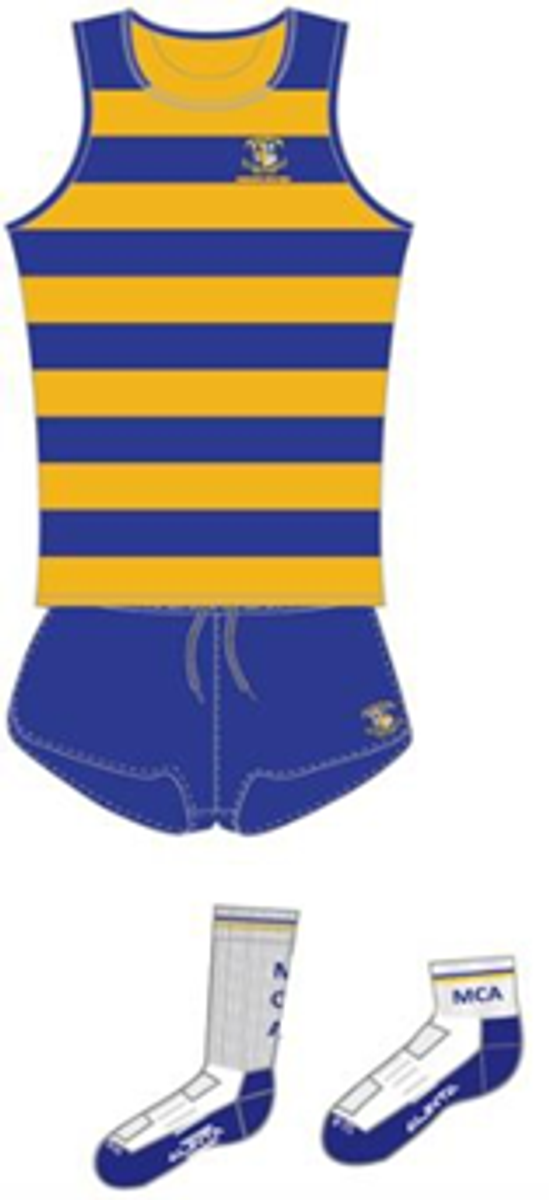

Race Schedule
Race Schedule | |
Age Group | Time |
Year 5 (2km) | 4:10pm |
Year 6 (3km) | 4:30pm |
Matt Millward
Cross Country Program Coordinator
Chess
AIC Chess – Round 3
Tejas Koirala (6M)
Last Friday, the primary chess cohort met at The Cyprian for another exciting round of chess against St Patrick’s College. Upon their arrival, we warmly welcomed them, found our seats, and began our matches. We played our moves carefully and came away with a strong lead after the first set of games. Afternoon tea provided a great boost of energy, helping us recharge before the final matches. Once we started our last matches, we maintained our momentum and held onto our lead. Both teams showed excellent sportsmanship and skill, with the A Team winning 15–1 and the B Team securing a 14–2 victory. It was a great challenge, and although competitive, we were pleased to come out on top. We’re looking forward to our next match!
Team | Iona | SPLC | SPC | SLC | SEC | Villa | Padua |
Junior A | Marist 10 def. Iona 6 | Marist 16 def. SPLC 0 | Marist 15 def. SPC 1 |
|
|
|
|
Junior B | Marist 10 def. Iona 6 | Marist 11 def. SPLC 5 | Marist 14 def. SPLC 2 |
|
|
|
|
Junior C | Marist 15 def. Iona 1 | Marist 10 def. SPLC 6 |
|
|
|
|
|
Sports Training and Clashes
With a myriad of opportunities on offer for the students, clashes are unavoidable but never a problem if communicated.
Families are reminded that cocurricular activities should not impede on any student’s academic performance.
If sports training clashes with music or morning tutoring it is asked that boys alternate from week to week.
Sports Photographs
We are always on the look-out for photos and action shots to be used for the Blue & Gold, other College publications, season or end-of-year wrap-ups etc. Please follow this link and add your photos.
Marist College Ashgrove Primary Sports Photos
Parent Orbit App
Please ensure that you download the Parent Orbit app to your smart phone. This app will be used to inform you of sporting fixtures, cancellations and bus arrival information.
Late Pick Up After Sports Training
“PLAN B”
It is important that both parent and student are aware of the pick-up procedure if afternoon sports training is cancelled or if parents are running late for pick-up. As soon as a decision is made to cancel a sporting fixture or training, a message is placed on the Parent Orbit app. If training is cancelled, boys can remain in the primary school or walk to an arranged pick-up point when the time arrives.
Afternoon sports training sessions are scheduled to finish by 4:45pm. We ask that boys are picked up at this time. Any boy who is still at their training venue at 5pm will be directed to the After Hours Boarding Reception area / College Health Centre so that he may be collected from there. After Hours Boarding Reception can be contacted on 07 3858 4619.
In the case of bus arrivals from external sporting venues, boys will be sent to After Hours Boarding Reception 15 minutes after the bus arrives back at the College. Parents are asked to collect their sons from this location.
